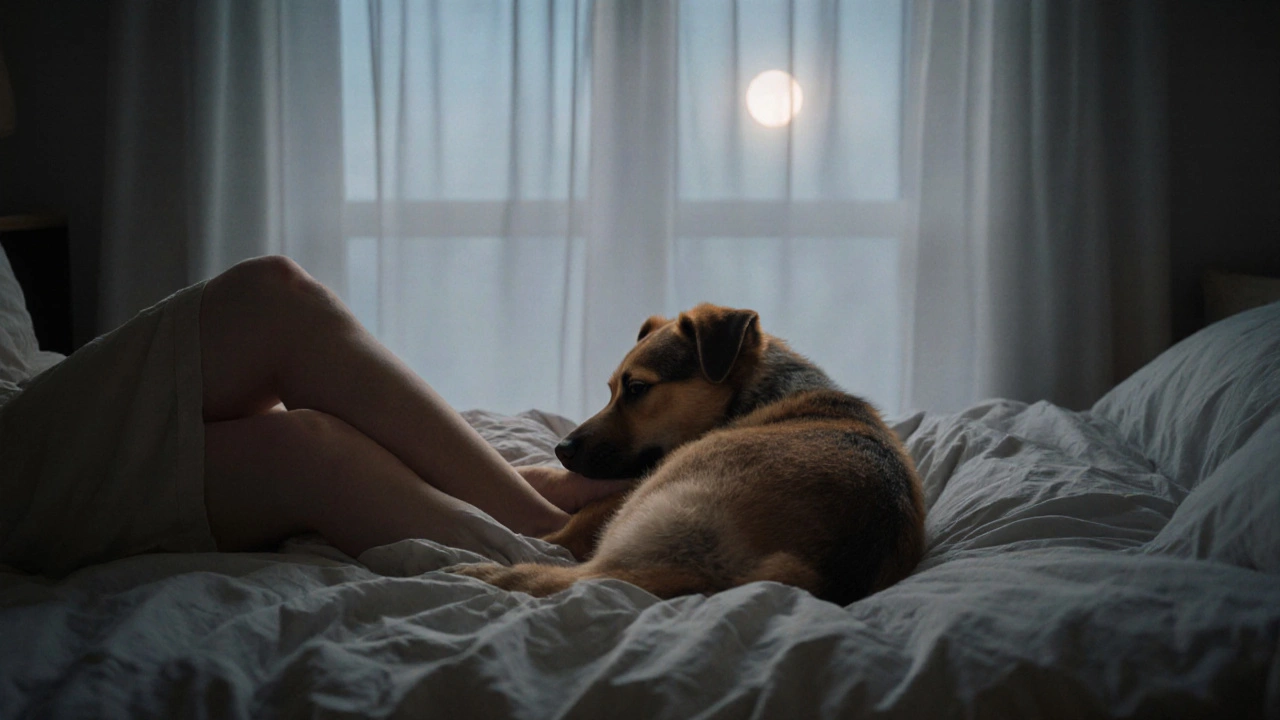Dog Sleeping Habits: What They Mean and How to Improve Them
When your dog curls up on the floor, stretches out like a starfish, or even sleeps on their back with paws in the air, it’s not just random—it’s dog sleeping habits, the natural patterns and behaviors dogs follow during rest, shaped by breed, age, environment, and health. These habits reveal more than just tiredness—they’re clues to how your dog feels, what they’re processing, and whether something’s off. Unlike humans, dogs don’t sleep in long, uninterrupted blocks. They cycle through light and deep sleep dozens of times a night, often waking up at the slightest sound. That’s why your dog might jump at a cough or twitch during a dream. It’s normal. But when their sleep changes suddenly—sleeping more, less, or in strange positions—it’s worth paying attention.
dog sleep patterns, the predictable ways dogs rest based on age, activity level, and breed vary a lot. Puppies nap up to 20 hours a day because growing takes energy. Adult dogs typically sleep 12–14 hours, spread out in short bursts. Seniors often sleep more as their bodies slow down. Then there’s breed: a Greyhound might sleep 18 hours because they’re built for bursts of speed, not endurance. A Border Collie might sleep less because their mind never fully shuts off. And dog sleep positions, how a dog chooses to lie down while resting, often reflects their comfort level, temperature needs, and emotional state—curled up means they’re keeping warm and feeling cautious; sprawled out means they feel safe and relaxed. If your dog suddenly stops sleeping on their back or starts panting while resting, it could signal pain, anxiety, or illness.
Some dogs snore, some twitch, some whine in their sleep. Most of the time, it’s harmless. But if your dog is restless all night, wakes up panting, or seems exhausted during the day, something’s wrong. Poor sleep can come from joint pain, allergies, anxiety, or even bad bedding. A worn-out cushion or a drafty corner can ruin their rest just as much as a noisy street outside. And don’t forget—dogs mirror our routines. If you’re up late scrolling or watching TV, they’re likely picking up on that energy. Create a quiet, cool, cozy space for them. Stick to a bedtime. Skip late-night snacks. These small changes make a big difference.
What you’ll find below are real stories and practical advice from dog owners and vets who’ve seen it all—from the pup who sleeps curled into a ball because they’re anxious, to the senior dog who’s suddenly sleeping on the cold tile floor because their joints hurt. You’ll learn how to tell the difference between normal rest and a red flag, how to pick the right bed for your dog’s body type, and what to do when your dog won’t sleep through the night. These aren’t theories. They’re fixes that work.
Posted By Bryndle Redding On 30 Oct 2025 Comments (0)
Why Does My Dog Sleep Next to My Bed? The Real Reasons Behind the Behavior
Your dog sleeps next to your bed not because they’re spoiled, but because of instinct, scent, and trust. Learn the real reasons-and what to do if you want to change it.
READ MORE